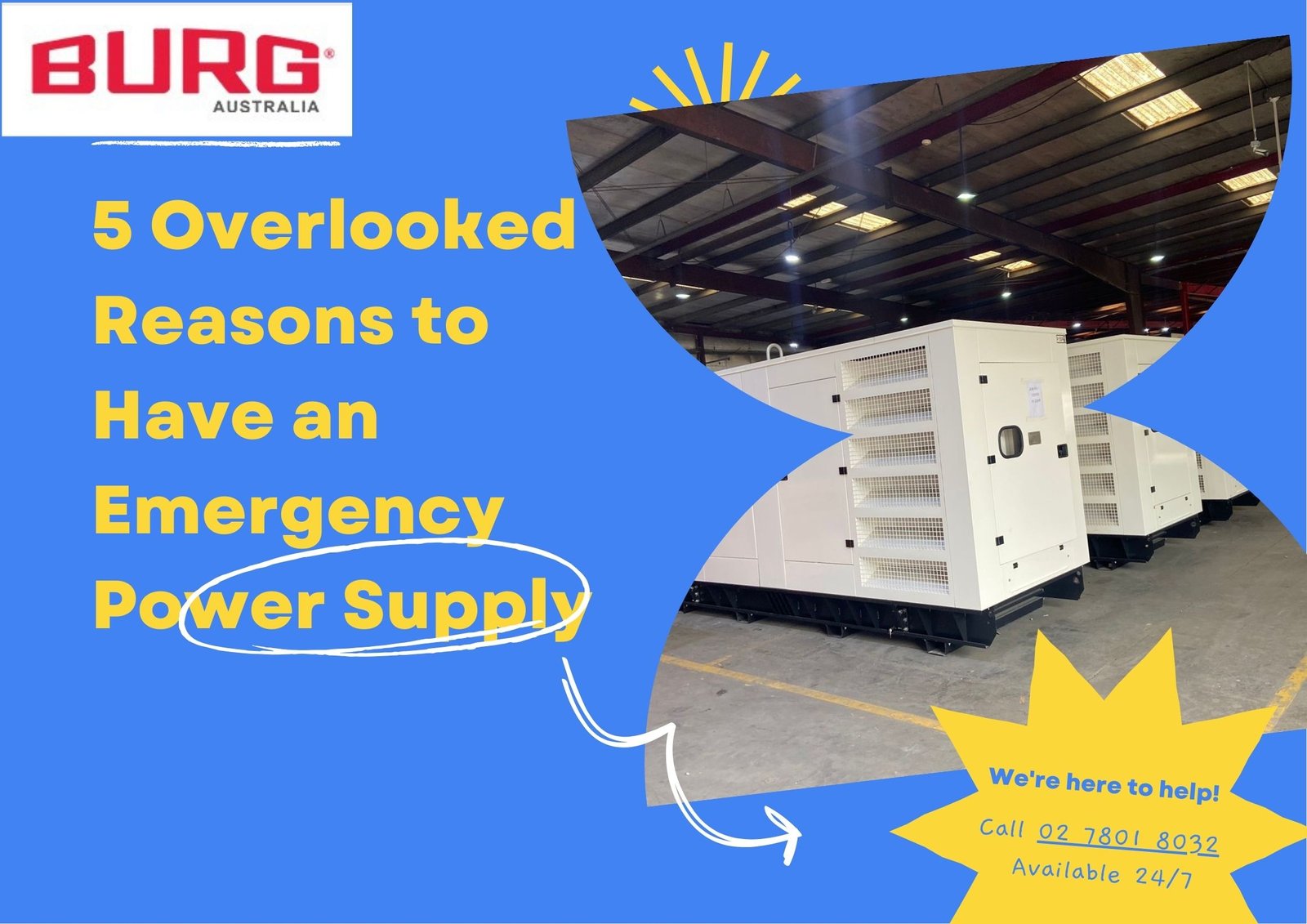When power cuts out, most businesses focus on the immediate disruption. But the real damage runs deeper—security gaps, data loss, and operational downtime can set your business back for days. A reliable emergency power supply isn’t just about staying lit—it’s about staying functional and avoiding the hidden costs of inaction. From productivity to protection, continuity matters more than most realize. Yet many businesses still treat backup power as an afterthought—until it’s too late.
Here are five overlooked reasons to keep your systems running.
1. Security Systems Instantly Go Offline
CCTV, electronic locks, and alarms stop the moment power is lost. That’s not just inconvenient—it’s a vulnerability. Without backup, your premises are exposed. Keeping security powered means your site remains protected, even when the grid isn’t.
Many businesses don’t realize how fast these systems shut down. Even a short lapse can compromise access logs or allow breaches. Recovery isn’t just technical—it could mean reputational damage, lost footage, or a denied insurance claim. Prevention is cheaper than response and far easier to manage.
2. Data Loss Happens in Seconds
From point-of-sale systems to local servers, any unsaved progress is gone the moment the power drops. That can mean hours of lost transactions or corrupt files. Prevent the domino effect by keeping power consistent.
Some equipment may need to be rebooted or recalibrated—a process that ties up staff. In industries like healthcare, logistics, or finance, those minutes aren’t just inconvenient—they’re expensive. Each interruption chips away at daily output. Even brief disruptions can lead to inefficiencies.
3. Every Minute of Downtime Costs You
If your operations rely on constant connectivity—shipping, customer service, inventory—then any disruption has a ripple effect. Whether it’s a five-minute blackout or an hour, lost productivity hits your bottom line.
It’s not only about the sale you didn’t make—it’s about delayed orders, frustrated clients, and pressure on your team to recover lost time. That strain piles up quickly without backup in place. Long-term, this can erode morale and affect retention, both of which are harder to fix. The longer the downtime, the more the damage compounds.
4. Perishable Goods and Sensitive Equipment Are at Risk
Fridges, freezers, and heat-sensitive tools can fail quickly. And it’s not just about spoilage—some devices are damaged when they shut down abruptly. Backup power bridges the gap and protects your assets.
If you’re in food service, biotech, or any temperature-controlled industry, the cost of a single outage can run into the thousands. Even minor temperature fluctuations can lead to rejected shipments or full disposal of stock. These aren’t minor inconveniences—they’re business interruptions that ripple across timelines.
5. Your Customers Don’t Wait
When your systems are offline, your customers move on. They expect availability, even during unexpected events. Backup power isn’t about convenience—it’s about staying reliable in the eyes of those you serve.
Modern customers don’t stick around when a service is down—they look for alternatives fast. Once they leave, getting them back isn’t guaranteed. Showing up consistently earns trust, even when conditions aren’t ideal. Power continuity is no longer a nice-to-have; it’s part of brand reliability and customer retention.
What Most Businesses Regret After an Outage
BURG provides emergency power supply backup solutions built for commercial and security-critical environments. If your operations depend on staying live, even for a few minutes, you can’t afford to leave power continuity to chance.
This isn’t about fear—it’s about control. Planning means you avoid disruption, downtime, and costs. And when the power flickers, your business doesn’t miss a beat. With the right system, you’re not just reacting—you’re staying in control.
Power Loss Isn’t the Problem—Being Unprepared Is
An outage doesn’t just cut electricity—it disrupts everything your business relies on. With a dependable emergency power supply from Burg, you avoid the scramble, the downtime, and the losses.
The time to plan isn’t during a blackout. It’s now, while everything’s still running—and while you still have the choice to be ready. Don’t let one avoidable outage turn into a preventable failure.
